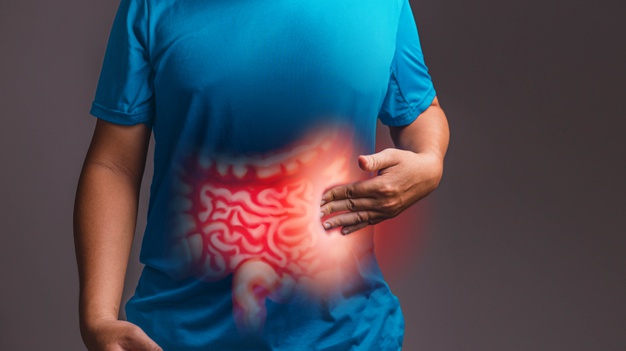Poop, one of the most relevant & visible biomarker of our health, is really complex- a watery mixture of bacteria ( living & dead), cellular lining, fibre, fat, protein, mucus, bile & various other compounds which our body cannot digest.
Early morning, most of us sit on our toilet, browse through the internet, social media updates or youtube video, flush & move on with our daily chores without realizing what we are eliminating. We tend to worry & take notice- when things go haywire & we haven’t gone to poop for a few days or haven’t left bathroom in few days.
Even small changes in shape, size, texture, consistency & frequency of our bowel movements can speak well about the status of our gastrointestinal tract/health.
Let us dig in more detail, what different size, shape & texture reflects about our digestive health.
Bristol Chart, developed by Dr. Stephen Lewis and Dr. Ken Heaton at the University of Bristol, is a universal classification system for human feces. Consider, this as ultimate decoder for your bowel movement & digestive health.
Poop type 1 & Type 2: If you are on this end of the spectrum, you are likely to be constipated. This also means that you have high risk of attracting IBS-C & your gut has active archaea which is releasing methane gas. This is clear result of gut dysbiosis.
Poop type 3 & type 4: These are ideal poop types, expelled easily in singular sausage or snake like shape, not too watery not too dry.
Poop type 5: If you poop looks a bit soft with ragged edges, you probably need more fibre in your diet to bulk up your waste.
Poop type 6 & type 7: If you are expelling this type of poop, probably you are suffering from diarrhea. This also means that you have high risk of attracting IBS-D & your gut must be releasing hydrogen gas as a result of fermentation of food you have been eating. This is a clear result of gut dysbiosis.
A lot of us experience the entire bristol chart at some point in our lives. Although one or two irregular bowel movements are okay, when this becomes a regular feature either constipated or watery release, you need a dietary intervention since your gut is in an imbalanced state.
What can you do if you are not pooping well? Around 70% of people globally suffer from irregular bowel movements & around 64 million people suffer from chronic constipation. Our dietary & lifestyle choices (stress, sleep quality) impacts quality of output (poop). There are number of choices that impact quality & frequency of bowel movements- increased consumption of microbiota accessible carbohydrates (MAC), fibre & probiotics & reduced consumption of protein( specifically animal protein & fat). Let us discuss these in detail.
Increasing your fibre intake: As we know our body outsources the job of digesting fibre to our colon (gut), which releases by product- short chain fatty acids that helps in regulating our blood sugar level, improving metabolism & satiety level. We have two types of fibre- soluble & insoluble fibre. Soluble fibre absorbs water to form gel like substance in your digestive tract. It helps you soften your stool for easy poop. Insoluble fibre is roughage which does not absorb water, but rather bulk up water to keep your stool movement regularly. Again which foods you should consume that will give you both soluble & insoluble fibre depends upon the composition of bacteria living in your gut & which food are right for these gut inhabitants. For instance, Spinach has fibre to feed your gut but it also high in oxalic acid. If your gut does not have an oxalobacter, the consumption of spinach will lead to bloating & gassy, leading to irregular bowel movements.
Probiotics: Probiotics are said to address gastrointestinal discomforts since these living bacteria help in improving the diversity of beneficial bacteria in our gut. Again which probiotics you should take depends upon your current state of gut microbiome. Improvements in proportion of beneficial bacteria perform various essential functions such as producing neurotransmitters that facilitates regulating mood, improved food motility & east of expulsion of poop. In fact, probiotics focused on improving the diversity of strains of lactobacillus & bifidobacterium helps in relieving us from digestive discomfort.
If you are experiencing type 1 (or type 2) or type 6 ( or type 7) for quite some time, you are suffering from gut dysbiosis & there is a need to make dietary intervention unique for your gut. By sequencing & analysing you gut microbiome, you can actually learn who are the folks living in our gut & how we can improve abundance & diversity of beneficial bacteria in our gut by making personalized dietary interventions & improve your digestive health. Sign up here for your free discovery call if you want to make bacteria in your gut work in favor of improving your overall health.


Leave a Reply